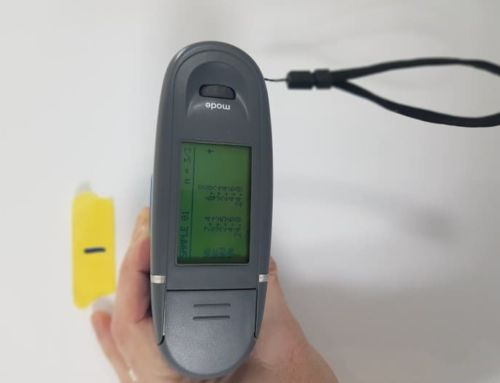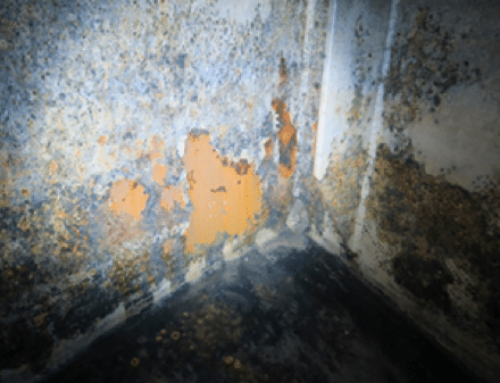In a world of more and more technologically advanced paint products and increasingly skilled contractors, it is perhaps surprising how many boats are still leaving the paint shed with a substandard paint job. Painting a yacht can be a tricky business and failing to organise proper consultancy can lead to serious headaches and even major paint disasters. This is why coating advisors in their roles as independent paint experts have become so important.
Superyacht coating consultancy is a relatively new phenomenon that evolved in the nineties and early zeros when shipyards had to deal with the pressures resulting from increased demand and bulging order books. Paint contractors were being constantly pressured into following (too) tight schedules and contractors were employing inexperienced paint crews. Moreover, since most yards did not have a dedicated paint manager, the need for paint inspectors to protect the owner’s interests increased. The results of these time constraints and lack of inspectors were clearly noticeable by the amount of superyachts entering refit soon after launch to undergo a (partial) repaint trying to rectify the initial lacklustre paint job. As the yards struggled to produce consistent paint results, the independent superyacht coating advisor emerged.
These days paint advisors do a lot more than police the paint crews. The job itself is increasingly holistic in its approach, involving assisting captains and owners from well before the start of the job all the way through to final acceptance and the warranty period.
So what exactly are the benefits of engaging a paint consultancy company?
1. A paint consultancy company can help you select the right shipyard, contractor and paint products.
Close ties with shipyards, (sub)contractors and paint manufacturers mean that a paint consultancy company knows which shipyard has strong paint management in place and which doesn’t. They know who is delivering top paint jobs and most importantly, who isn’t. As more paint manufacturers enter the marketplace, product choice is taking centre stage and paint consultancy companies can advise on which products work best on which boat.
2. A superyacht paint expert can properly assess the plan submitted by the yard and help captains and/or management companies negotiate the contract.
Has enough manpower been allocated to the project? Has enough time been allocated for potential reshoots? Is everything included in the contract or is the yacht’s management going to get hit with charges for extra work and additional bills? What about removal of caulking, doors and hatches, addressing rubber seals and removal of margin planks – has enough time been allocated for all these tasks, and is this work included in the price?
Does the contract specify quality criteria in terms of gloss, orange peel, and DOI (distinctness of image)? Has the warranty been properly stipulated or is it only very generic in nature? Are there any warranty clauses in place and, most importantly, have objective acceptance criteria been agreed upon?
A successful paint job starts with adequate preparation and firm agreements.
3. An objective pair of eyes keeps the yard and the contractor on their toes.
With all the paperwork in place and the paint job underway, it is of utmost importance that an expert pair of eyes is patrolling the scaffolding, checking up on progress, measuring where necessary, and making sure the products are being applied according to the paint manufacturer’s specification. A coating advisor can either be on the job on a daily basis or they can be called in periodically, for instance when a ‘hold point’ has been reached.
4. Benefit from assistance with ad-hoc technical decisions.
Paint jobs never go fully according to plan and it is highly likely that decisions will need to be made as the work progresses. Many of these decisions might be technical in nature with potential impact on the final result. It helps if you can rely on the expertise of a coating advisor to guide you in these matters.
5. Benefit from the close ties the paint experts have with the paint production companies.
Which products are performing well and which are subject to failure? A paint expert will know the difference and offer you peace of mind in a volatile industry where certain paint products and altered formulations are known to cause paint defects and other difficulties.
6. The paint work can be objectively assessed/measured. No subjective discussions!
Once the paint job has been completed, the coating advisor is called in to assess the quality of the paint work, and a comprehensive report is drafted based on the measurement results. If there are any areas that fall outside the criteria (which were stipulated before work began), then remedial work should automatically take place. Having these criteria in the contract and backed up by professionally conducted measurements, takes the guesswork out of final work acceptance. It ends subjective discussions and arguments on what is an ‘acceptable’ paint finish and what is not!
This final survey also serves as a starting point or benchmark for the warranty period. Only when you have a measurable starting point can you properly gauge the deterioration of the paint finish over time.
Ultimately all parties want to see a yacht leave the shipyard sporting an immaculate paint job that was applied on time and on budget. Shiny boats make owners happy and, as we all know, happy superyacht owners make this industry tick!
—
About CCS:
In 1992 Joop Ellenbroek saw the need for a dedicated superyacht paint inspection and surveying service and founded CCS Yacht Coating Services. To this day the company has surveyed and inspected over 600 superyachts with a total length of 36000 meters. CCS employs 7 highly skilled coating advisors, the majority of whom benefit from a background in yacht paint application. At any point CCS’s Coating Advisors are traversing the globe assisting owners, captains, management companies and shipyards with tailor made consultancy solutions. CCS also assists with in court cases and insurance matters and the company plays a role in establishing universally used paint quality criteria.



